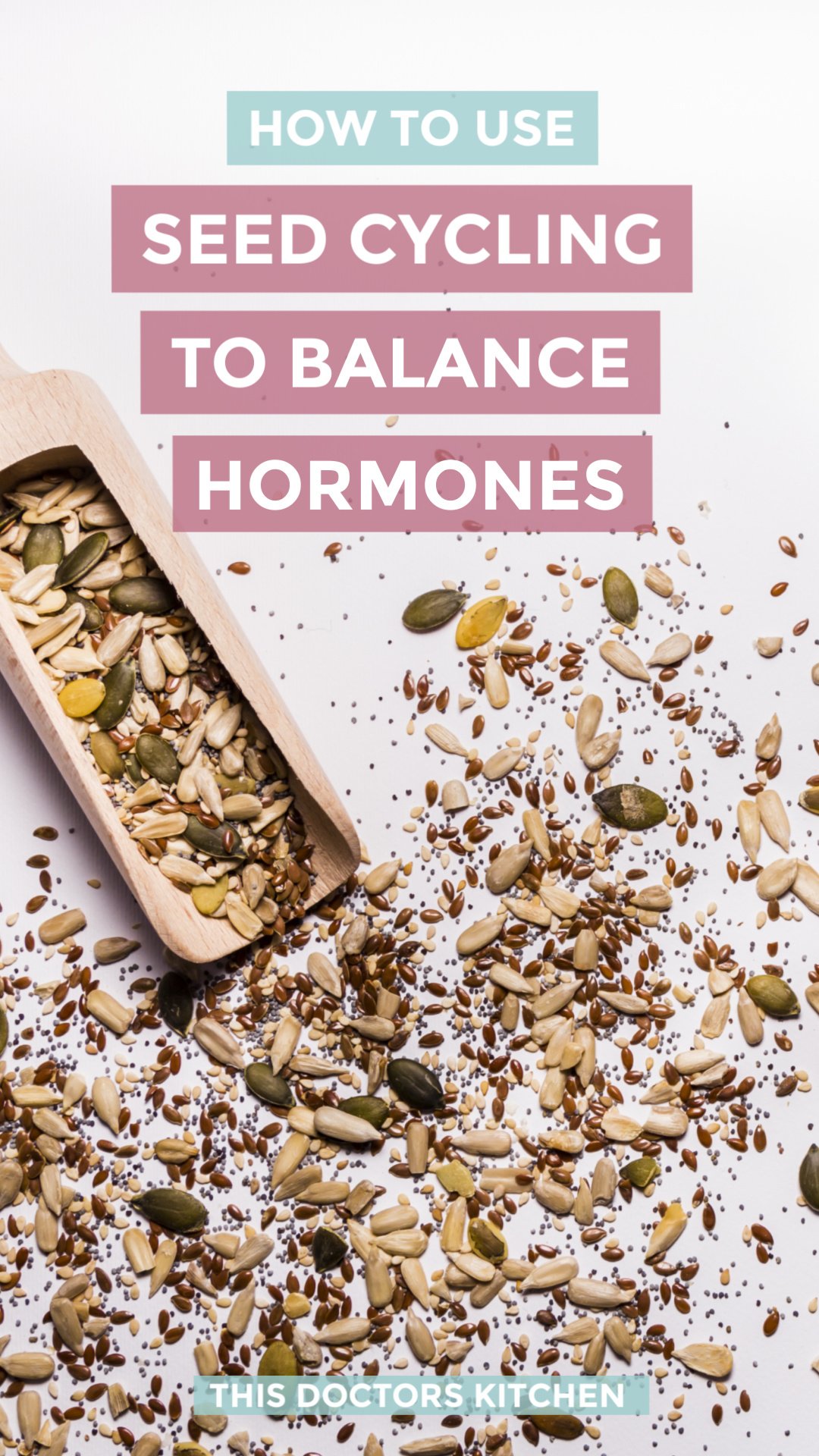I’m Sarah, a Naturopathic Doctor, wellness enthusiast and health-foodie. I’m a well-being advocate and green kitchen guru who is living my true purpose while guiding patients through their personal health journeys. I’m also a complete and utter health food fanatic who wants to see everyone benefit from eating healing foods!
May 3, 2018 By Sarah White 4 Comments

I believe that food truly is is medicine, and often prescribe functional foods like sesame seeds, flax seeds and pumpkin seeds to help my female patients optimize their hormone levels. There’s an ancient hormone-supportive technique called seed rotation, or seed cycling, which can be used to naturally boost estrogen levels when they should be highest in the first part of the female reproductive cycle (follicular phase) and progesterone levels in the second half (aka luteal phase). While there’s yet to be a placebo-controlled trial on the use of nuts and seeds to boost hormone production (which pharmaceutical company would fund that study?), it’s still a useful functional food therapy that I often prescribe as an adjunct to personalized herbal or bio-identical hormonal treatments. Seed cycling is safe, easy and my patients consistently report that it makes a difference in their overall hormonal health. There’s even a study from the the Journal of Clinical Endocrinology & Metabolism which shows that eating the seeds included in this seed cycling protocol results in an improve progesterone to estrogen ratio. The women who ate these seeds were also found to have longer luteal phases, which is often associated with a healthier hormonal cycle and regular ovulation.
Follicular Phase (days 1 – 14 of your female hormone cycle): This is the estrogen dominant phase, there should be very little testosterone and no progesterone present in the first half of your cycle while you’re body is building up endometrial tissue and preparing for ovulation. Flax seeds and pumpkin seeds support healthy estrogen production in the first half of your cycle because they contain high levels of lignans – plant polyphenols that help to modulate estrogen levels. They also contain a good dose of omega 3 fatty acids (flax) and magnesium (pumpkin) to help your body produce healthy hormones.
Eat the following seeds daily, ideally 1 tablespoon of each:
Luteal phase (days 15 – 28): Progesterone is the dominant hormone during the luteal phase and women with irregular cycles or difficult periods are often deficient in this key reproductive hormone. Sesame seeds and sunflower seeds are to be eaten in the second half of your cycle since they are great food sources of zinc (sesame seeds) and vitamin E (sunflower seeds) – two nutrients that have been shown to stimulate progesterone production:
In perfectly healthy women, the menstrual cycle should be regular, easy and symptom-free, with no need for additional interventions. Unfortunately, I have yet to see a single female patient with a ‘perfect’ cycle. PMS symptoms and hormonal acne are two of the most common reasons that patients seek out my care, and many of weight-loss patient even have high estrogen levels at the root cause of their inability to lose weight despite diet and exercise (women with estrogen dominance have been shown to burn 300 – 400 less calories everyday compared to women with ‘balanced’ hormone levels). Stress, poor dietary choices, digestive issues and environmental toxins all contribute to hormonal problems and we may be able to offset this damage to our endocrine system by simply adding a few tablespoons of nuts and seeds to the diet. I encourage you to try this protocol for yourself for a few months, as my patients are often surprised how much they enjoy adding this nourishing ritual based on the body’s natural hormonal rhythms.

References:

Dr. Sarah White is a Naturopathic Doctor, Integrative health expert and the founder + CEO of This Doctor’s Kitchen — your evidence-based resource for all things health and wellness. Dr. Sarah takes a food-first approach to health with a focus in fertility, longevity and natural beauty. She is recognized as an expert in women’s hormones, thyroid health and anti-aging. Dr. Sarah is a published health author with features in Elle Canada, Best Health, EcoParent & Whole Family magazine.